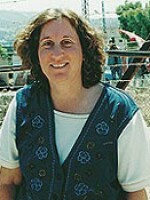MADELEINE BRAND, host:
To Israel now, where some people want to make it illegal to auction off Holocaust memorabilia. The proposal comes after a recent sale. The auction houses say they're doing nothing wrong; survivors say the sales cheapen the memory of the Holocaust.
NPR's Linda Gradstein reports.
LINDA GRADSTEIN: Auctioneer David Ben-Ami Andres held an auction of more than 600 items from the state of an elderly Holocaust survivor. Among the items was a yellow cloth patch in the shape of a Jewish star that the Nazis forced all Jews to wear. It's sold to an Israeli collector for $260. Another item was a yellow pin worn by Jews in Bulgaria. It sold for even less.
Speaking in his office in Tel Aviv, Andres says he's helping to preserve these objects.
Mr. DAVID BEN AMI ANDRES (Auctioneer): These two items come from the estates of Holocaust survivors. Usually the heirs do not appreciate these things, and my belief, if they wouldn't be sold, they just would be thrown out and lost and forgotten.
GRADSTEIN: But many Holocaust survivors disagree. David Silberklang is the director of publications at Yad Vashem, Israel's national Holocaust Museum.
Dr. DAVID SILBERKLANG (Editor-in-Chief, Yad Vashem Studies): It's an indignity to the people who were killed and to the event. This is not a commercial event. It's an event that affected all of humanity in the most horrible way - changed history in the most radical way. And I think that there's something, it kind of cheapens the memory of all that, the significance, by turning it to something commercial.
GRADSTEIN: The memory of the Holocaust looms large in Israel. An estimated 270,000 survivors reside in the Jewish state, about a third of them living in poverty. Every Israeli child studies the Holocaust and many Israeli high school students join class trips to Poland, where they visit gas chambers.
David Silberklang of Yad Vashem says hundreds of objects of both Nazi and Holocaust memorabilia are sold each year.
Dr. SILBERKLANG: Some of it is sold on eBay. It's sold in auction. It's sold privately. People do try to make money out of these things.
GRADSTEIN: Last year, several paintings attributed to Adolf Hitler were sold in England despite protests by Jewish groups. One of the paintings reportedly fetched more than $22,000.
Auctioneer David Ben-Ami Andres says he knows of dozens of yellow star patches sold in Israel over the past few years. Hundreds more have been sold abroad. He says some collectors buy the objects to help prove that the Holocaust really happened. He distinguishes between Nazi memorabilia, which he says he would never sell, and items such as the yellow star patch.
But a newly proposed law would make what Andres did illegal. The bill introduced this week prohibits trade in Holocaust and Nazi related items and calls for a mandatory prison sentence of one year for violators. The bill includes a clause exempting institutions, which buy objects for commemorative purposes. Andres says the bill, if passed, will backfire and could strengthen claims that the Holocaust never happened. He says there already is a lot of fake memorabilia being sold, much of it made in China.
Mr. ANDRES: The worst thing that could happen would be that fake yellow patches would be sold because this wouldn't be illegal - because these are not real yellow patches. And then, of course, those guys that deny the Holocaust would have something else on - you see, these things aren't real. They are selling fake ones. They don't have real ones.
GRADSTEIN: Linda Gradstein, NPR News, Jerusalem. Transcript provided by NPR, Copyright NPR.






